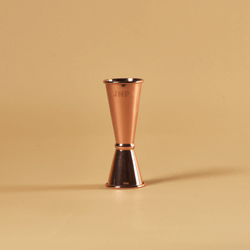Le Dry January: trend around non-alcoholic spirits
1. Trends around alcohol consumption in France
France remains among the countries with the largest consumers of alcohol in the world, and ranks 6th among the countries in the European Union where the most alcohol is consumed daily, according to the latest Eurostat study. (1). The overall trend, however, is towards a decline in consumption , particularly due to public policies put in place over the last decades (Evin law, road safety, etc.). From 26L in 1960, average annual consumption per capita has fallen to 10L in 2020 (2).

2. The “no-low” market in figures
- In 2022, according to a BVA survey, 35% of French people had expressed the intention of participating in Dry January (3).
- The "no and low" segment has exceeded forecasts, and has already reached 10 million euros in value according to the latest ISWR study published in December 2022, an analysis which covers the 10 main markets globally including France ( 4).
- +8% is the average annual growth rate for this segment estimated for the period 2021/2025, while for classic spirits the rate is estimated at +0.7% (4).
- 14% : this is the rate of abstainers among consumers of non-alcoholic spirits (4). The vast majority of consumers continue to drink alcohol but alternate depending on the times of consumption.
3. JNPR, first French brand to have developed a range of alcohol-free spirits
JNPR comes from the juniper berry, the brand's main ingredient, which was replanted in Normandy

4. DRY JANUARY: the opportunity to take a break from alcohol consumption
Experiment launched by the University of Sussex on 3,000 participants in England in 2013, consisting of not drinking alcohol for a month, after the end-of-year celebrations, and which attracts more and more followers each year. Here is his observation on the benefits of stopping alcohol consumption:
- 67% believe they have gained energy
- 57% believe they have improved their concentration
- 71% noticed benefits on their sleep
- 58% announced that they had lost weight
(1) https://ec.europa.eu/eurostat/web/products-eurostat-news/-/EDN-20210806-1
(2) www.ofdt.fr
(3) https://www.bva-group.com/en/sondages/francais-defi-de-january/
(5) University of Sussex, How 'Dry January' is the secret to better sleep, saving money and losing weight https://www.sussex.ac.uk/news/article/47131-how-dry-january-is- the-secret-to-better-sleep-saving-money-and-losing-weight






